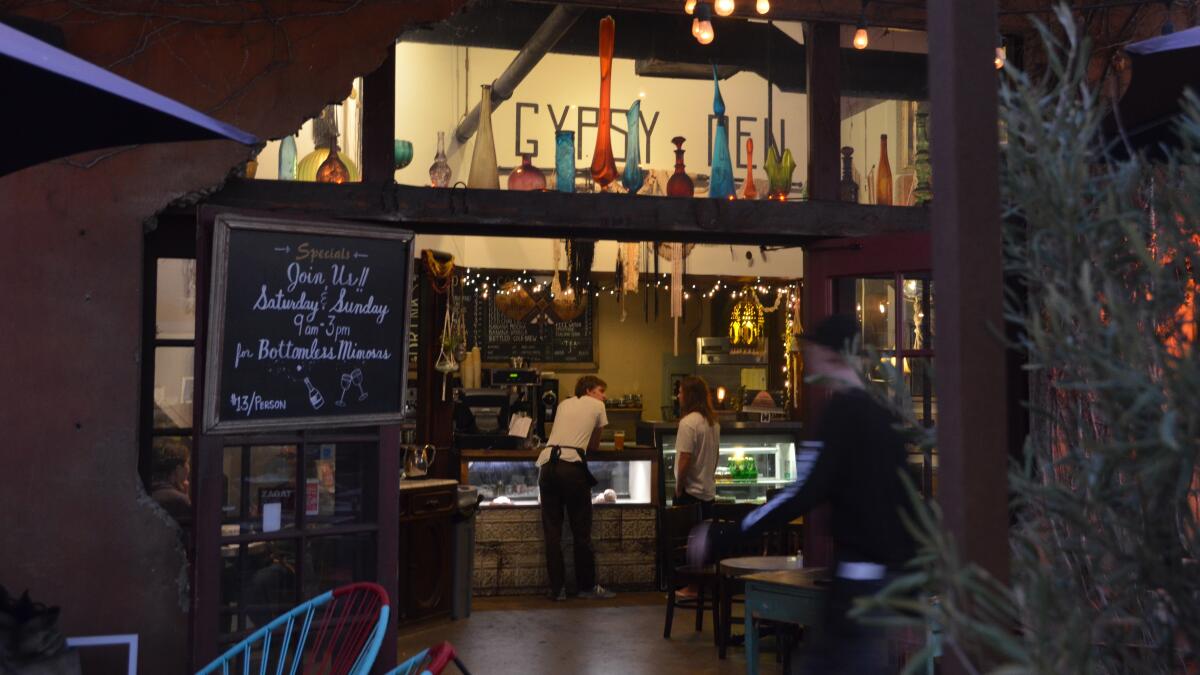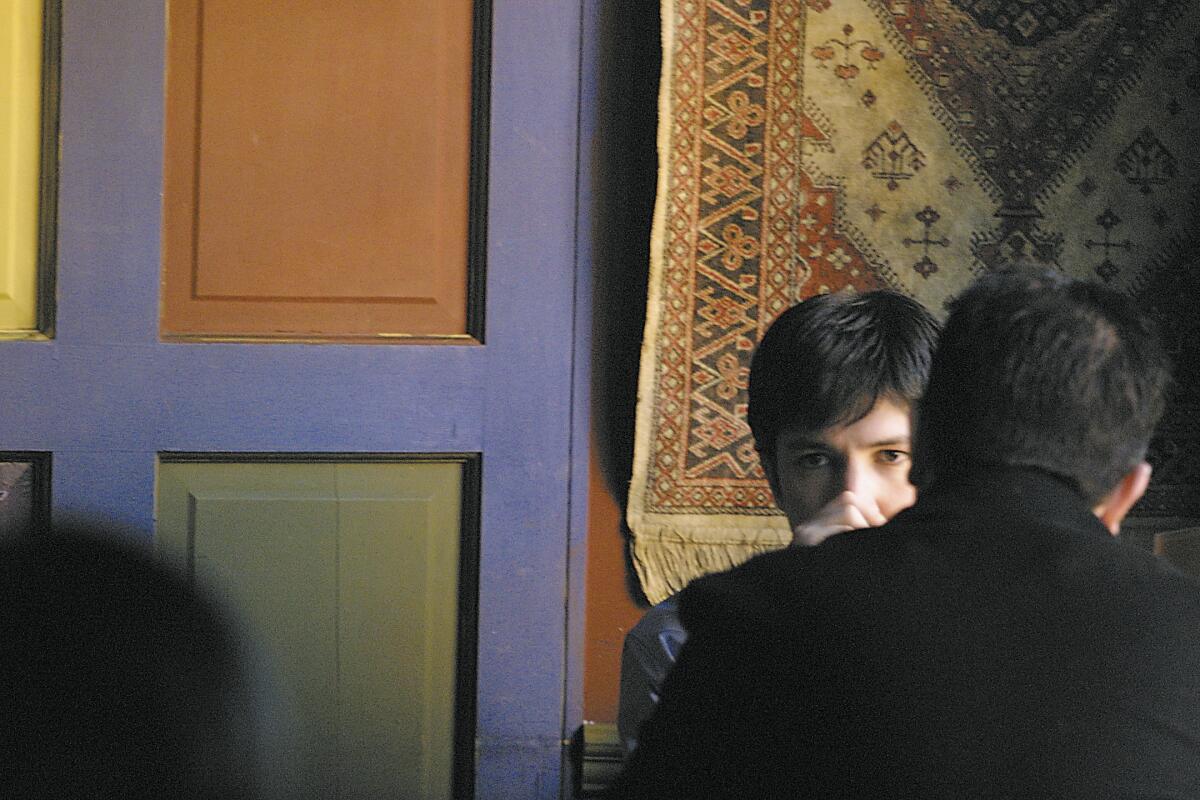Gypsy Den café changes its name out of respect for Romani people, who find ‘G-word’ offensive

- Share via
The popular Gypsy Den café is now known as The Den, eliminating an ethnic slur from its name.
The Den, with locations at The Lab in Costa Mesa and downtown Santa Ana, is known for its artsy, counterculture sensibilities and vegetarian and vegan food.
It had been the Gypsy Den since 1994.
Owner Ryan Shuck announced the name change on the Santa Ana location’s Facebook page, saying it was out of respect for the Romani people for whom “gypsy” is a derisive label.
Romani are a historically persecuted, internationally dispersed people concentrated in Europe. The German government has acknowledged that Romani were targeted during the Holocaust, and there is a memorial to the victims in Berlin.
“Regardless of ‘all the good’ I believe we represent, we would like to honor our Romani brothers and sisters’ objection to the use of the ‘G-word’ and we will be changing our name and calling ourselves ‘The Den’ in the interim,” Shuck wrote in the July 15 post. “We want our Romani friends to know that we respect them and their history and we would never intentionally use a hurtful word in our business name.”

Most of the response to the post was positive.
Shuck’s business partner, Nicole Wolcott, said the business didn’t get any accusatory or angry complaints about its original name but she had heard the occasional question, and she grew to realize “that it was a really hurtful word.”
After hearing that a vendor from the Downtown Santa Ana Witch Walk apologized for using the word in reference to the café, Wolcott continued her research. The Den is a major supporter of the Witch Walk, a monthly vendor fair for metaphysical products and services.
Wolcott and Shuck had a long discussion before making the switch.
“We went through waves of emotions because we always saw the Den as a beacon of inclusiveness and a safe space for all, but I kept coming to the same conclusion — no matter our intent, the word hurts people,” Wolcott said. “I didn’t want it to be explained away with semantics.”
All the latest on Orange County from Orange County.
Get our free TimesOC newsletter.
You may occasionally receive promotional content from the Daily Pilot.










